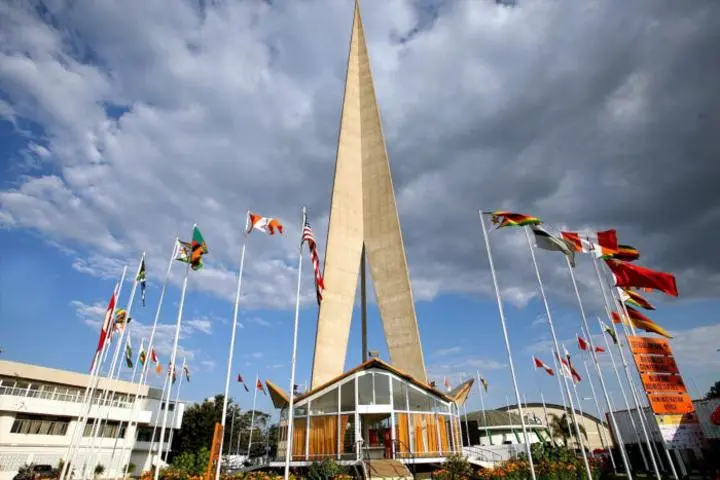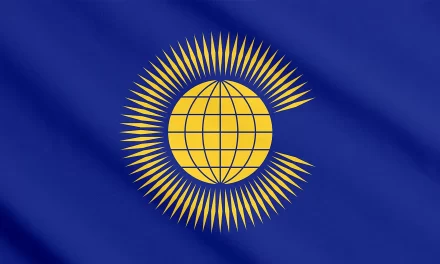By Cde Bekezela Mkonto kaMthwakazi
The Zimbabwe International Trade Fair (ZITF) came and went last week, complete with marching bands, ministerial ribbon-cuttings, and desperate exhibitors handing out flyers like candy.
Yet among the glitz and chatter, one absence was deafening: Chief Chigananda Wicknell Chivayo’s empire of companies was nowhere to be seen.
Intratrek Zimbabwe, Ren-Form CC, IMC Technologies Inc.—those beloved recipients of government millions—chose not to grace the fair with their presence.
Not a booth, not a banner, not even a branded pen to steal for the unemployed youths in Bulawayo.
Meanwhile, Chivayo himself was front and centre, basking in presidential affection like a visiting foreign dignitary, showered with star treatment marked by extravagant pomp, meticulous protocol, and shameless flattery.
He grinned for the cameras, posed with the nation’s top brass, and generally behaved like a man who had just robbed a bank and been hired as its security consultant.
His firms, however, stayed hidden like guilty toddlers after a broken window.
For businesses supposedly entrusted with solar power projects, electoral materials, and power station refurbishments, the decision to skip the country’s biggest trade showcase is as suspicious as a butcher in power-outage-plagued Mkoba selling meat without shouting “fresh beef!” at the top of his lungs.
Chivayo’s track record, if we dare use such an athletic term, is the stuff of legend.
Intratrek Zimbabwe was paid US$5.6 million upfront for the Gwanda Solar Project and responded by producing less electricity than a dead flashlight.
The Munyati Power Station refurbishment, priced at a cool US$113 million, remains a monument to deferred dreams and extended lunch breaks.
Meanwhile, the US$100 million ZEC tender scandal demonstrated that Ren-Form CC’s real talent wasn’t printing ballots, but inflating prices to such heights they should have been charged air traffic control fees.
Any real company would have leapt at the chance to exhibit at the ZITF, throwing up glossy displays and PowerPoints full of promises and half-truths.
Chivayo’s firms couldn’t even muster a laminated poster.
If a company scores a government contract bigger than the national health budget, surely it could afford a trestle table and a few bored interns in branded golf shirts?
Their complete invisibility tells a simpler truth: it’s time for Zviganandas to eat in silence without being interrupted by nonsensical issues of accountability and transparency.
These firms exist on paper, and their chief product is political loyalty, not services or goods.
Perhaps they feared awkward questions from Western-sponsored activists calling for transparency, accountability, and good governance.
Intratrek would have had to explain why its solar farm harvests only tumbleweeds.
Ren-Form CC might have struggled to explain why their printing costs make the RBZ’s infamous Bearer Cheques from the early 2000s look like a well-thought-out strategy.
IMC Technologies would have had to admit that their US$20 million monthly cash withdrawal allowance wasn’t for “operational expenses,” but for funding girlfriends, side chicks, and extravagant lifestyles.
Unbothered, Chivayo floated through the fair like the ghost of contracts past, gleefully shaking hands with officials who seemed weirdly at peace standing next to a man whose business dealings make Mbare’s bucket-fixing vendors look like saints.
In a country desperate for real industry, real jobs, and real progress, the Chivayo method of “business” is a national treasure written in gold letters across a backdrop of poverty.
The ZITF, designed to celebrate legitimate commerce, unwittingly exposed the rot in the system, which we are sure True Patriots, our beloved ZANU PF, will not be happy with.
The absence of Chivayo’s companies shouted what audits and reports have struggled to say plainly: these are not businesses, they are political heists dressed in corporate drag.
They survive not by innovation, not by service, not by competition, but by sucking the state dry like very well-dressed leeches, “Zvigananda!”
Perhaps next year the ZITF could include a new category: “Outstanding Achievement in Imaginary Deliverables.”
Chivayo would surely win gold, silver, and bronze, as well as the tender to produce the same medals; he is a tender-preneur par excellence after all.
Or better yet, he could be given a special award for “Best Disappearing Act”—because when it comes to public accountability, no one vanishes quite like Wicknell, despite his bulky, heavy presence.
Until real reform arrives, Zimbabwean taxpayers will continue to fund these high-class con games, receiving in return only photo ops, broken promises, and the growing suspicion that the real winners at the ZITF aren’t the exhibitors—but the no-shows.





